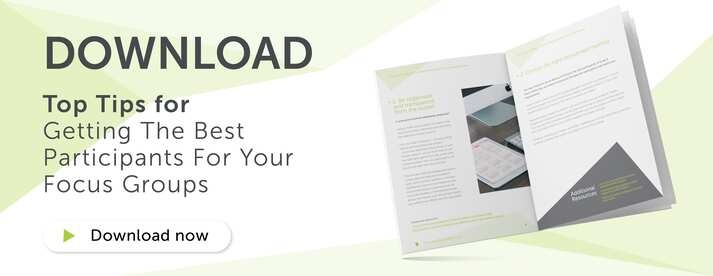
Moderated User Research: Top Tips
When it comes to user experience testing, there are two ways to do it: either with a moderator or without. Both have their pros and cons, but generally speaking, moderated user research will unveil detailed insight into usability of your website or mobile app that a user following instructions on their own often won’t be able to replicate.
Effective moderation can be tricky though, and a good moderator should understand how the nature and timing of questions can influence the outcome and therefore be able to make critical decisions about what to ask and when to ask it. Don’t worry though – although moderating user experience tests might seem a bit daunting, practice really does make perfect – and along with our top tips below, you’ll be a master of moderation in no time!
Ask the Right Questions
Moderators are in the business of asking questions. But actually, the art of questioning is a delicate one – ask too many questions, the wrong question, or ask a question at the wrong time and it could influence the findings. One of the golden rules of moderation is to stay neutral at all times and try not to ask leading questions that make the participant feel as if they should answer in a specific way.
Good questions could include:
- What are your thoughts about...
- Please tell me more about...
- How difficult was it for you to complete this task?
The above are probing questions that don’t lead the participant in a direction they wouldn’t otherwise have gone. It’s about taking their lead and querying for deeper insight. For example, if they say, “this is really great”, you could probe with “what makes it great?” to uncover more information. Be careful not to fall into the trap of asking closed questions that give yes or no answers, too. It’s easier than it sounds and can take a bit of practice to get right, but if in doubt, “how”, “why”, “where” and “what” are usually good phrases to start with.
Make Sure You Build a Relationship
In order to get good results from your user research, it’s important to build a good rapport with your participant. It’s easy to underestimate the importance of this and assume that if you go in with carefully crafted questions you’ll be in a strong position to tease info out of them – but this isn’t always the case. After all, the more trust they have in you, the more open they’ll be and the more likely they’ll be to speak their mind.
Good rapport starts from the moment the participant starts engaging with you at recruitment stage, so it’s important to be clear and communicative from the beginning. You should give participants clear instructions so they know what’s going on and what’s expected of them from the start. You should also make sure there’s a strong introduction – first impressions count, so a confident handshake and eye contact will always get things off to a good start, as well as a welcoming and friendly tone of voice.
Answer Questions with Questions
It’s likely that participants will ask you questions during the session, with favourites usually being “should I do this?”, “did I do that right?”, and “what should I do now?”. It’s important to remember here that your views are irrelevant – and so the best way to deal with incoming questions is to use the boomerang technique and gently deflect their questions with another question.
If participants ask you if they did something right, try and respond with something like “do you think it was the correct selection?” or “what makes you unsure you’ve selected the correct option?”. It can be a bit difficult at first, but by turning the questions back to them, you can usually find out about much more about their intentions and motivations. As with all things, though, practice makes perfect – so if you need to, just let your users know at the beginning of the session that you can’t answer questions as you want the session to be as authentic as possible. This gives you permission not to answer anything that could lead the findings in an unnatural direction.

Embrace the Awkward Silence
Everyone hates an awkward silence – and it’s human nature to try and fill it. But try and remember that in moderated user research, a little bit of silence is OK! Yes, you want your users to think aloud – but you need to give them space to read, make adjustments and generally think about what they are doing, as well as giving you the chance to observe.
If you notice that they are having a hard time, give them a few seconds to try and figure things out on their own, but don’t let them dangle too much – you could try asking them some open ended questions about what they are thinking and why to try and figure out what’s going on. And don’t forget, often they will need more time than you expect to absorb the design and gather their thoughts because unlike you they aren’t familiar with the product or website, so try not to rush in unnecessarily when they go a bit quiet from time to time.
How you moderate will have a significant impact on the quality of your research findings. The goal, of course, is to get realistic findings that represent as closely as possible the real-world experience. Follow these tips and you’ll have a strong foundation for conducting your usability tests and be a moderator pro before you know it!
Are you looking for the best participants to take part in your user research project?
Download our guide to recruiting awesome participants for your online qual now...














